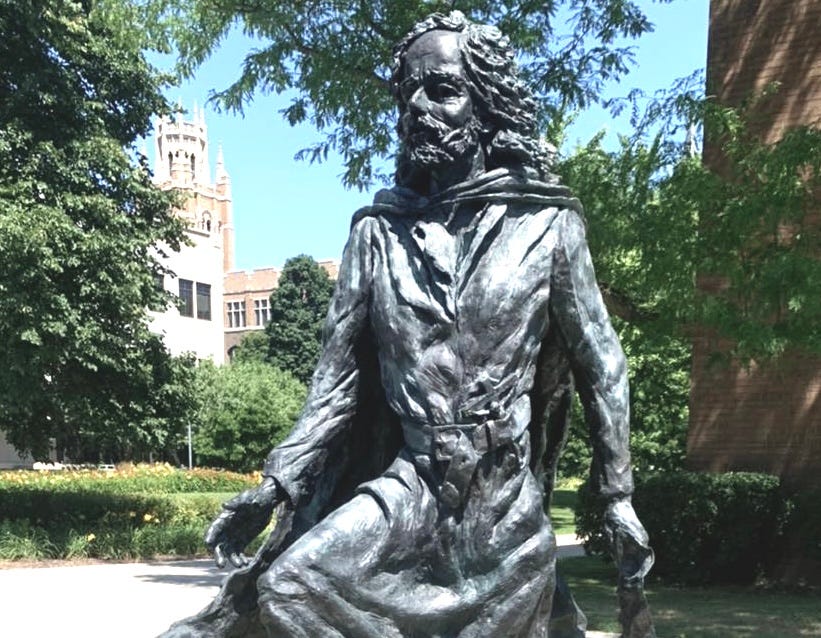Class Reflections: Plato's Meno (part 2)
we puzzle a bit together about what we know, or just think we know, and what learning involves
We’re finishing up our discussion of some of the key themes in Plato’s dialogue, the Meno. We left off around the halfway point in the dialogue, with Meno accusing Socrates of being like the stingray, paralyzing those he encounters. Meno entered the dialogue with a long track record of giving talks about virtue, a topic he thought he understood. It turns out that he doesn’t actually know what virtue is, or at least he is not able to provide a definition for virtue that withstands any scrutiny.
Knowledge is one of the key topics this dialogue addresses. It turns out that a lot of people who believe they have knowledge, and about who other people believe they do as well, don’t. Even if they tend to be successful in managing matters, as we learn later in the dialogue, they often don’t have genuine knowledge but just muddle through relying upon “correct opinion” or “belief”
Socrates will introduce a theory of knowledge and correlatively about learning that, at least for many objects and kinds of knowledge seems pretty implausible, something that later philosophers called the “doctrine of recollection”. This holds that when we seem to be learning something new, we are actually being brought to recollect or remember knowledge that we already have within ourselves. It just required being brought up to our consciousness.
There’s a famous example of this provided in the dialogue, with Socrates leading Meno’s uneducated slave-boy through a geometric proof by asking his questions, presumably helping him to recall the knowledge of geometry that was already within him (since he never was taught it in his short lifetime). Now Plato certainly picked the right sort of knowledge to focus on in that example, the sort of topic that would later on get called a priori (that is, knowable before or without reference to experience), and specifically about broadly mathematical matters.
Is Plato committing himself to the stance that ALL knowledge human beings possess is really already within them at birth? Does he really think that there’s absolutely nothing that we actually learn, in the sense of acquiring knowledge we didn’t previously possess, transferring knowledge from one person (or information source) to another? That seems pretty unlikely, and my students pick up on that quickly enough. But could this be the case for matters like arithmetic, geometry, logic, and the like? Or perhaps even for at least some moral and metaphysical matters? It’s possible.
I try to draw my students’ attention to something that gets glossed over in this dialogue, and more broadly speaking in a lot of Plato’s works. “Knowledge” doesn’t name just one sort of thing. There are multiple types of knowledge, and they might require different things, work different way, have different objects. Now, I’m not attempting to provide some comprehensive account of all the different sorts of knowledge that a person could have. That’s a much vaster enterprise. But we can at least distinguish between these:
The sort of abstract knowledge that a geometric proof would be an example of
Instinctual knowledge (of a sort) like an infant knowing to suckle a breast for food
Experiential factual knowledge like honey being something that tastes sweet
Knowledge of how to do, make, or perform something
Knowledge of what a person is like, of who they are as a person
The first of these could very well be something that turns out to be innate knowledge. Perhaps we start out in the world with a storehouse of knowledge within us that we just need to have activated in some way.
My students often bring up the second kind as their go-to for understanding what Plato has in mind, but as I point out to them, that sort of instinct isn’t what he means by knowledge at all.
The other types, which play massively important roles in our day-to-day existence don’t seem to fit this learning-as-recollection and innate knowledge perspective at all. Now does Plato, in this dialogue, have any of the characters distinguish between these kinds or modes of knowledge and the one he uses as his paradigm? Not at all. That’s where we have to be attentive, thoughtful, and imaginative readers, and introduce distinctions he doesn’t have his characters make.
As I bring this to a close, I’ll just mention that next week, we look at parts of Plato’s Republic (books 4 and 6-7), where it is clear that Plato thinks we can develop knowledge of key matters in ethics, epistemology, and metaphysics. He actually tells us there what the cardinal virtues are, what knowledge consists in, and a good bit about the Forms. But no need to clue my students in about that yet. Let them wonder and wander for a little while in Socratic aporia, about what it is that they thought they knew, and whether or not they really have knowledge, before I introduce them to Plato’s answers.


